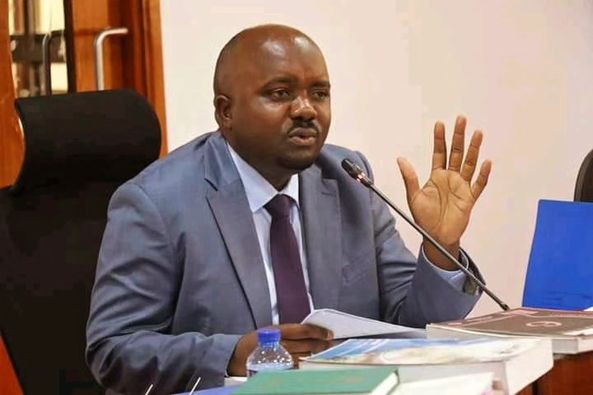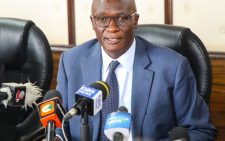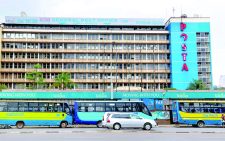MPs uncover fake imprests scheme

Members of Parliament have uncovered a scheme involving civil servants defrauding taxpayers through the misuse of daily subsistence allowances and imprest payments.
During a review of the financial accounts of the State Department of Shipping and Maritime Affairs for the year ending June 30, 2022, the Public Accounts Committee (PAC) of the National Assembly identified significant discrepancies in payment vouchers and the imprest register.
The PAC’s analysis of payments made for recurrent cashbook entries revealed that imprests totaling billions of shillings were paid to staff for domestic travel and allowances.
Auditor General Nancy Gathungu indicated that the amount paid suggested that officers were in the field for more days than their work schedules could realistically accommodate. For example, the legitimacy of Sh28 million paid as allowances to staff could not be verified.
Acting committee chairman, Tindi Mwale, supported by the Auditor General and Principal Secretary for Shipping and Maritime Affairs, Geoffrey Kaituko, noted that this issue was not isolated to one department but prevalent across state agencies.
Kaituko admitted that payments made to officers exceeded the actual number of days worked, suggesting they were paid for more days than served—potentially amounting to over a year’s worth of payments.
“This suggests they were paid for more days than they actually served, possibly amounting to more than a year’s worth of payments,” admitted the PS.
Rarieda MP Otiende Amollo pressed Kaituko for clarity, pointing out the apparent contradiction between Kaituko’s response and the Auditor General’s findings.
Amollo questioned whether these claims were fraudulent, noting that the number of days claimed exceeded what was possible.
“Are you agreeing with the Auditor General’s findings? It seems your response contradicts the Auditor General’s statement—would you like to correct it?”
“In very polite terms, the Auditor General is essentially stating that these claims were fraudulent. When they mention that the number of days claimed exceeds what was possible, they are indicating fraud. Aren’t we seeing fraud here?,” added Amollo.
Kaituko responded that a more thorough review of the vouchers might be necessary, proposing to gather and present the information to the committee within a week. He clarified that the Sh28 million in question related to daily subsistence allowances and standing imprest payments, with Sh14.2 million issued to officers for various activities across counties.
“Sh11.7 million was paid to officers carrying out field activities, while Sh 2.1 million was allocated for tea and other office operations,” the PS explained.
Soy MP David Kiplagat emphasized the importance of distinguishing between imprest, claims, and per diems during audits. He expressed concerns about questionable allocations, such as Sh2 million for dubious activities, suggesting that a system loophole might be exploited. Kiplagat called for a forensic audit to investigate these issues.
Mwale also questioned the legitimacy of the payment samples, suggesting they were insufficient and possibly fraudulent. He pointed out specific instances where officers appeared to receive and surrender the same amount multiple times, indicating potential misuse or system errors. Mwale urged the head of accounts to explain these inconsistencies and called for a forensic audit to uncover the root cause.
Kaituko explained that errors in the IFMIS system could cause repeated transactions when surrendering funds, but Kiplagat accused him of not being truthful. Kiplagat argued that the problem lay not with the system but with its users, who had found ways to manipulate it, allowing them to take multiple imprests under false pretenses. He insisted that the issue was with those exploiting the system rather than the system itself.









